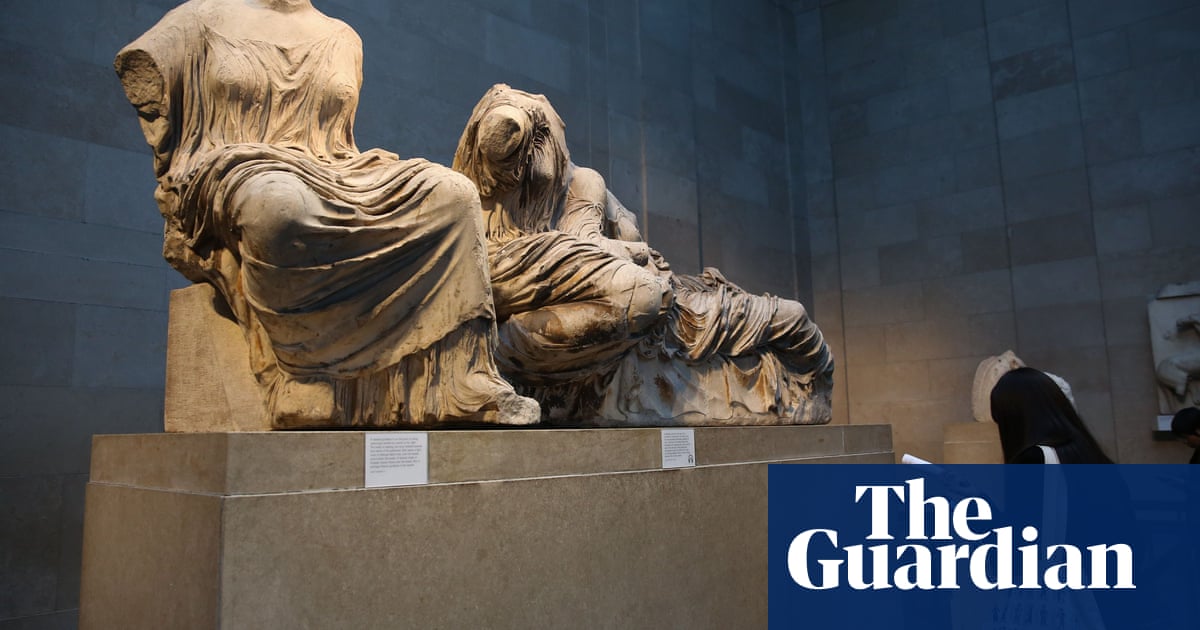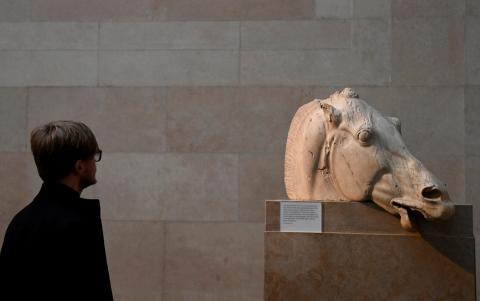
The New Acropolis Museum was purpose-built to host the one thing every Greek government will always agree on: the Parthenon marbles being returned from London.
On Saturday, as the four-storey edifice marked its 11th anniversary, Athens reinvigorated the cultural row calling the British Museum’s retention of the antiquities illegal and “contrary to any moral principle”.
“Since September 2003 when construction work for the Acropolis Museum began, Greece has systematically demanded the return of the sculptures on display in the British Museum because they are the product of theft,” the country’s culture minister Lina Mendoni told the Greek newspaper Ta Nea.
“The current Greek government – like any Greek government – is not going to stop claiming the stolen sculptures which the British Museum, contrary to any moral principle, continues to hold illegally.”
For years, she said, the museum had argued that Athens had nowhere decent enough to display Phidias’ masterpieces, insisting that its stance was “in stark contrast” to the view of the UK public. In repeated polls, Britons have voiced support for the repatriation of the carvings, controversially removed from the Parthenon in 1802 at the behest of Lord Elgin, London’s ambassador to the Sublime Porte.
“It is sad that one of the world’s largest and most important museums is still governed by outdated, colonialist views.”
Greece’s centre-right administration has vowed to step up the campaign to win back artworks that adorned the frieze of the Periclean showpiece ahead of the country’s bicentennial independence celebrations next year.
Within weeks of his election, Kyriakos Mitsotakis, Greece’s prime minister, told the Observer Athens was prepared to allow treasures that had never travelled abroad to be exhibited in London in exchange for the marbles being reunited with “a monument of global cultural heritage”.
Well-placed government officials have not excluded the EU pressing for the return of the antiquities as part of an overarching Brexit deal.
The row was injected with renewed rancour when the British Museum’s director, Hartwig Fischer, described their removal from Greece as “a creative act”. Half of the 160-metre frieze is in London, with 50 metres in Athens and other pieces displayed in a total of eight other museums across Europe
Last year more than 14.5 million people visited the new Acropolis museum among the most popular cultural institutions globally.
For those who want the sculptures back in Athens, the Acropolis Museum’s top-floor Parthenon gallery is the perfect antidote to the dark Duveen gallery in the British Museum.
Some 2,500 years after its construction, the Acropolis is viewed as Pericles’ greatest triumph, testimony, say admirers, to his role in the achievements of the Golden Age.
As a classicist with an avowed love for ancient Greece, Boris Johnson has often paid tribute to the soldier statesman’s mastery of governance “by the many, not the few”, placing a bust of Pericles – purchased from the British Museum’s gift shop – on his desk as soon as he moved into Downing Street.
But the British prime minister remains an ardent supporter of the sculptures remaining in London contending they were “rescued, quite rightly, by Elgin”.
This month his predecessor, Tony Blair, conceded in an interview with the Greek newspaper Kathimerini that the sculptures had been in a box marked “too hot to handle”.












